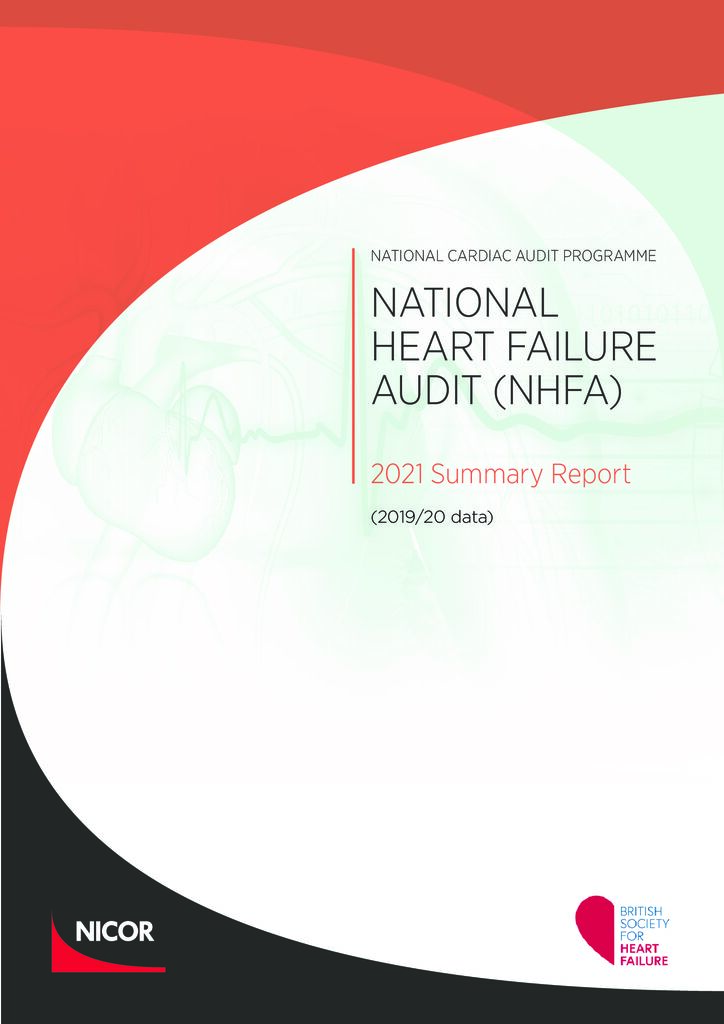National Heart Failure Audit (NHFA), 2021 Summary Report
A summary report based on 2019/20 data from the National Heart Failure Audit (NHFA) has been published, as part of the work of the National Cardiac Audit Programme. The NHFA deals with the characteristics of patients requiring admission to hospital with heart failure and describes their in-hospital investigation, treatment and access to specialist care as well as discharge and follow-up.
Key findings from the 2019/20 data include:
- There were 69,556 admissions captured in the 2019/20 audit, a 7% reduction from the previous year
- Mortality is static despite the ageing population, and
- There was a 10% improvement in the number of hospitals achieving 90% or greater prescription of beta-blockers for patients with reduced ejection fraction (HFrEF).
However, while there are no new treatments for acute heart failure (AHF), this report does find that there is still considerable scope for improving patient outcomes by focusing on providing high quality in-patient and peri-discharge care. The 2109/20 audit found that there was a marked reduction in access to diagnostics, life-saving drugs and specialist care in older people. There was also a downward trend in the percentage receiving an in-patient echocardiography, the “gold standard” diagnostic test (now at 86%).
Read the full report: You can read the report by clicking on the link below.
Stay-up-to-date: For notifications of future reports from HQIP, sign up to our mailing list.


